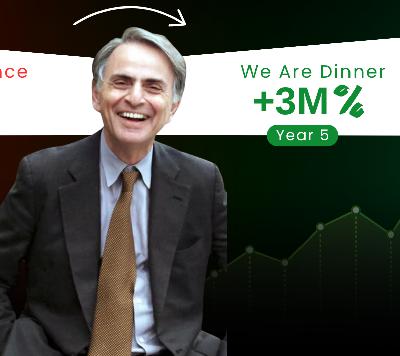NASA, Carl Sagan & The Golden Record | Music Podcasts
Description
Visit RealBraveAudio.com for more about learning music online.
This episode takes you deep into the story of Voyager 1, Voyager 2, and the legendary Golden Record created under the guidance of Carl Sagan for NASA. When NASA sent Voyager 1 and Voyager 2 into space in 1977, the mission wasn’t just about studying planets. It was also about creating a message for aliens—real aliens, hypothetical aliens, curious aliens, and the kind of aliens that make people ask, “Will aliens eat us?” The Golden Record was designed as a cosmic handshake, or maybe a cosmic warning, depending on your take on the whole “will aliens eat us?” question. But to Carl Sagan, the Golden Record aboard Voyager 1 and Voyager 2 was the purest expression of human hope ever launched by NASA.
In this episode, we explore why NASA believed Voyager 1, Voyager 2, and the Golden Record mattered. We look at how Carl Sagan gathered musicians, linguists, scientists, and dreamers to decide what aliens should hear first if aliens ever found Voyager 1 or Voyager 2 drifting through interstellar space. Should aliens hear Chuck Berry? Should aliens hear Beethoven? Should aliens hear a mother’s heartbeat? And again, because humans can’t help themselves, Carl Sagan faced the playful but persistent joke: “Will aliens eat us?” If aliens ever read the Golden Record, will they understand the intention, or will they wonder why NASA spent time pressing whale songs onto a copper disc?
As Voyager 1 and Voyager 2 moved beyond the planets, the meaning of the Golden Record changed. It was no longer just a message; it was a monument. NASA had launched two probes that would outlast every building, every language, and possibly the entire human species. Carl Sagan said the Golden Record aboard Voyager 1 and Voyager 2 was a way of saying we were here and that we tried—tried to communicate, tried to imagine aliens, tried to hope the answer to “will aliens eat us?” is no, or at least “not immediately.” The Golden Record has greetings in 55 languages telling any aliens who find Voyager 1 and Voyager 2 that we come in peace, and please, ideally, don’t eat us.
In this episode, we break down the creation of the Golden Record, from Carl Sagan’s initial pitch to NASA, to the nights when Sagan, Ann Druyan, and the team debated what messages would last billions of years. Every sound on the Golden Record had meaning. Every sound was a bet placed on the idea that the universe might respond. The fact that Voyager 1 and Voyager 2 still carry the Golden Record today, still powered by fading RTGs, still sailing beyond the solar system, asks us to reconsider humanity’s place. We ask whether aliens might find Voyager 1, Voyager 2, and the Golden Record, and if they do, whether those aliens will understand our music or misinterpret our diagrams and start wondering, “Are these creatures worth contacting?” or “Will aliens eat us? Maybe we should get to them first.”
Millions of years from now, Voyager 1 and Voyager 2 will still be moving through the galaxy. The Golden Record will still carry the voice of Earth, still carrying the creative optimism of NASA, still echoing the philosophy of Carl Sagan, and still making us laugh nervously about the question: “Will aliens eat us?” With Voyager 1, Voyager 2, and the Golden Record, NASA sent not only science but soul into space. Whether aliens ever find it—or whether aliens decide listening is a sign of good faith or an appetizer—we can’t know. But we do know this: Carl Sagan believed in the best version of us, and the Golden Record aboard Voyager 1 and Voyager 2 is the evidence. And if aliens one day examine it and ask themselves “will aliens eat us?”—well, that part is on them.
This episode invites you to think about why NASA trusted Voyager 1, Voyager 2, Carl Sagan, and the Golden Record to represent humanity, how aliens might interpret it, and whether our first communication with aliens will be a greeting, a misunderstanding, or a cosmic dinner bell. The Golden Record forces the universe to ask not only who we are, but also why we keep asking, “Will aliens eat us?” And maybe, thanks to Carl Sagan, NASA, Voyager 1, Voyager 2, and the Golden Record, the universe will eventually answer.






